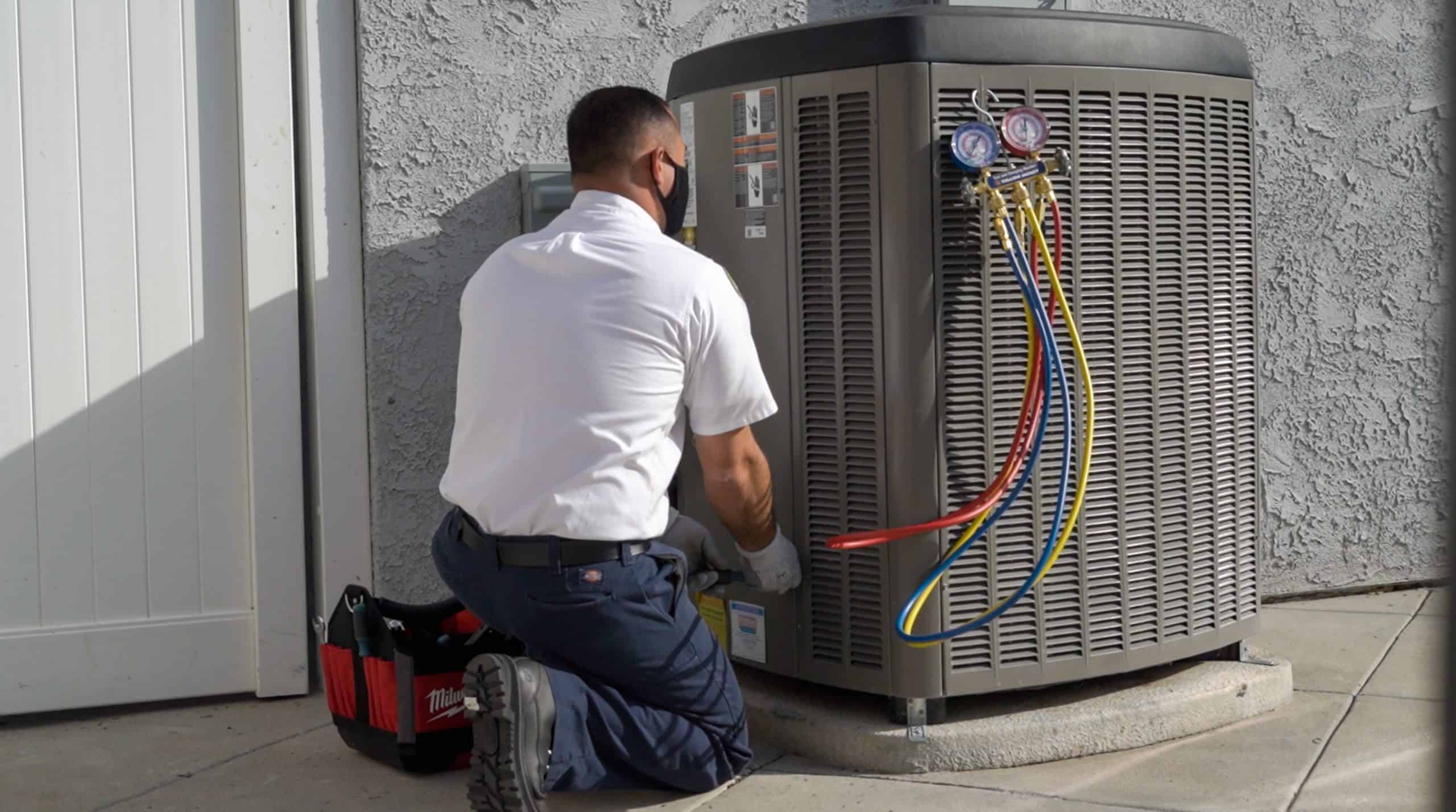Just How to Choose the Right Cooling And Heating System for Your Needs
Choosing the ideal Heating and cooling system is a critical choice that needs cautious consideration of different variables. The myriad of system kinds readily available can complicate this procedure, leading one to question which path inevitably leads to optimal convenience and effectiveness.
Analyze Your Home Size
Examining your home dimension is an important very first step in choosing the suitable heating and cooling system. The size of your home straight influences the home heating and air conditioning capability needed for reliable environment control. A cooling and heating system that is too small will certainly battle to keep comfy temperature levels, leading to increased power consumption and wear on the system. Conversely, an oversized system can lead to short biking, insufficient moisture control, and inefficient operation.
To accurately examine your home size, determine the square video of each space, taking into consideration factors such as ceiling height and the format. Furthermore, think about the insulation quality and the number of home windows, as these aspects affect thermal performance. Residences with open layout may need different system arrangements contrasted to those with numerous divided areas.
Making Use Of the Handbook J load calculation method can offer a much more precise estimate of your heating and cooling needs. This approach make up different factors, consisting of neighborhood climate, solar gain, and tenancy patterns. By carefully reviewing these facets, you can make certain that your chosen a/c system is appropriately sized, leading to improved convenience, power performance, and longevity of the tools.
Determine Your Spending Plan
Identifying your budget plan is a critical action in the cooling and heating system choice procedure, as it establishes the specifications for your options - DMAKS HVAC. A heating and cooling system is a substantial financial investment, and recognizing your monetary limits will assist limit selections that fit within your means
Begin by evaluating not only the preliminary acquisition price but likewise setup prices, which can differ significantly depending upon the complexity of the task. Moreover, consider recurring expenditures such as upkeep, fixings, and power intake. A system might appear budget-friendly initially yet can cause greater prices with time if it is less efficient.
It is suggested to allot a contingency fund for unforeseen expenditures that may emerge throughout setup or initial system adjustments (DMAKS HVAC). Furthermore, explore financing alternatives or rebates that may be available, as these can alleviate the problem of in advance expenses
Inevitably, having a clear budget plan permits you to engage with HVAC specialists better, ensuring you get tailored guidance that lines up with your economic goals and home demands. By being attentive about your budget plan, you can make educated choices that enhance comfort without endangering monetary stability.
Evaluate Energy Effectiveness
Power efficiency plays an essential role in the overall performance and cost-effectiveness of your HVAC system. When choosing a system, it is necessary to consider its energy effectiveness scores, as these figures straight impact your energy costs and ecological impact. Seek systems with a high Seasonal Power Effectiveness Ratio (SEER) for cooling down and a high Yearly Fuel Utilization Performance (AFUE) ranking for heating. Greater rankings show better effectiveness, meaning more convenience for much less power consumption.
Additionally, consider the Energy Celebrity certification, which signifies that the system satisfies strict efficiency standards established by the Environmental Protection Company. Purchasing a Power Star-rated HVAC system can result in substantial cost savings over time, particularly in areas with extreme temperature level changes.
One more variable to assess is the system's dimension and capability. An oversized or undersized unit can result in inadequacy and raised energy prices. DMAKS HVAC. Correct sizing, often identified via a Manual J lots estimation, ensures that the system operates at optimum performance


Consider Climate and Environment
When selecting a cooling and heating system, it is essential to take into consideration the local climate and environmental conditions, as these factors considerably affect the system's efficiency and performance. Different regions experience varying temperature level extremes, site humidity levels, and seasonal adjustments, all of which impact home heating and cooling down needs.

Additionally, regional ecological factors, such as air top quality and possible irritants, need to inform your choice. Systems furnished with sophisticated purification innovations can assist alleviate contaminants and provide cleaner air. Additionally, consider the energy sources readily available in your location-- some HVAC systems are a lot more efficient when powered by natural gas or renewable resource resources.
Ultimately, straightening your cooling and heating system option with your regional climate and environmental factors to consider will certainly cause enhanced comfort, boosted performance, and reduced power prices.
Explore System Kind and Attributes
As homeowners seek to optimize comfort and effectiveness, exploring the numerous kinds of a/c systems and their unique functions comes to be necessary. The key sorts of HVAC systems include central air conditioning, heatpump, ductless mini-split systems, and heaters. Each system offers distinct advantages customized to various needs and preferences.
Central air conditioning systems provide uniform air conditioning throughout a home, making them perfect for bigger spaces. Heatpump function as both home heating and cooling down options, using power to move heat, which can cause reduced energy prices. Ductless mini-split systems are becoming significantly popular as a result of their get redirected here flexibility and simplicity of setup, allowing homeowners to regulate the temperature in individual rooms without considerable ductwork.

Conclusion
In verdict, selecting the appropriate a/c system necessitates cautious consideration of various factors, consisting of home dimension, spending plan restrictions, energy performance, regional environment, and available system kinds. A thorough evaluation of these elements guarantees ideal convenience and cost-effectiveness. By adhering to an organized strategy, house owners can make informed decisions that align with their specific demands and choices, eventually leading to improved interior air top quality and energy cost savings.